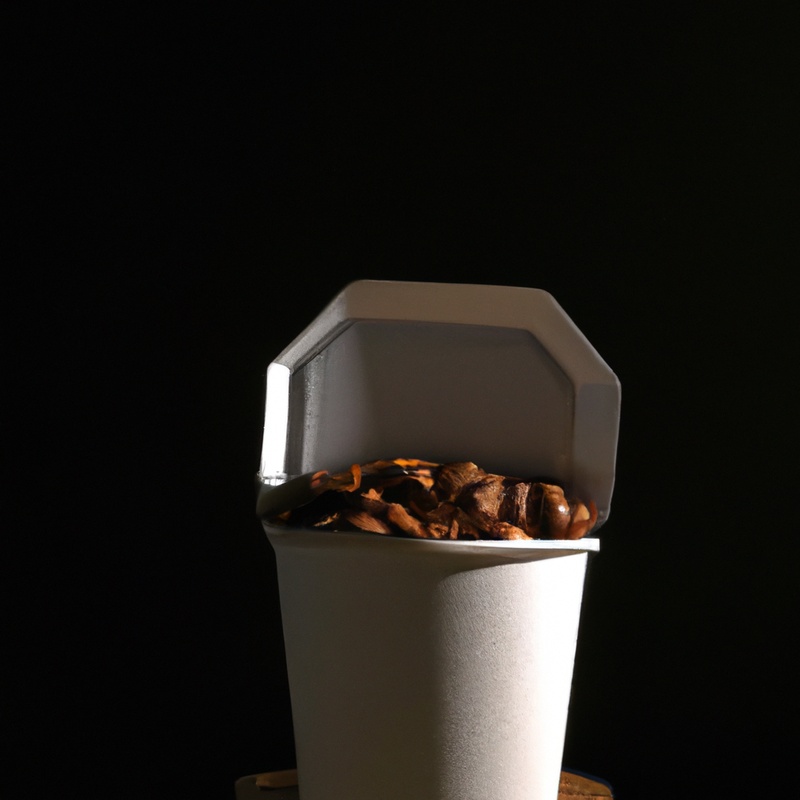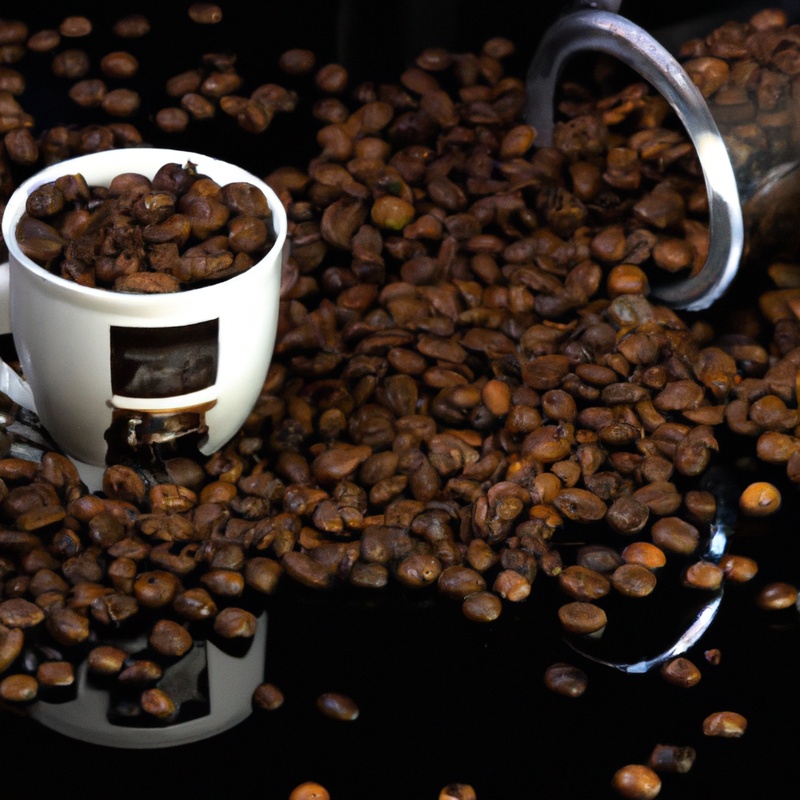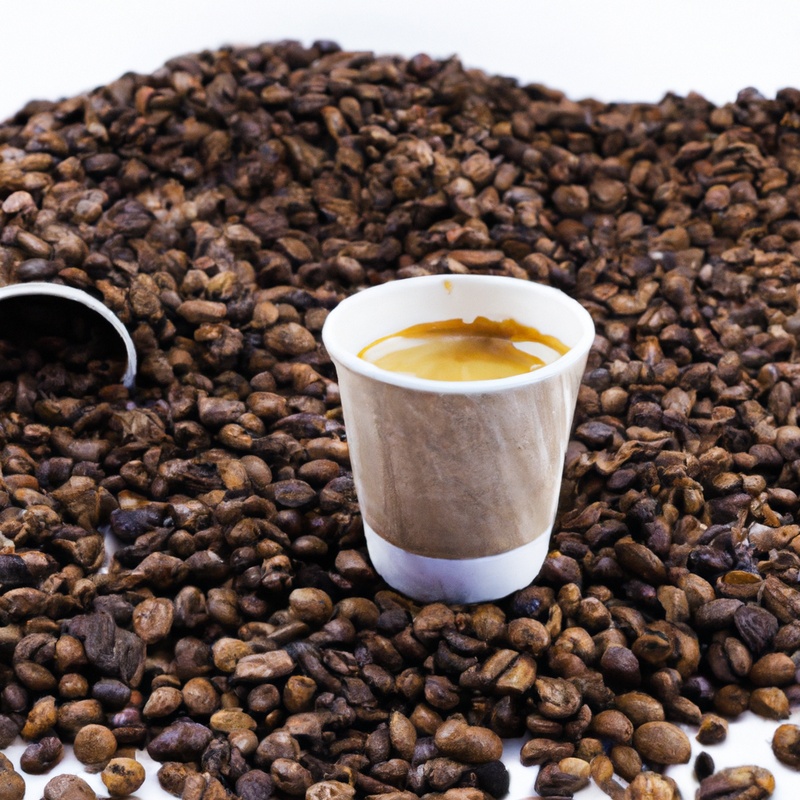Key Takeaways:
- Cold brew coffee typically contains higher amounts of caffeine compared to regular brewed coffee.
- The caffeine content in cold brew coffee can vary depending on the coffee beans used and the brewing method.
- When consumed in moderation, cold brew coffee can provide a higher caffeine boost due to its concentrated nature.
- It is important to be aware of your caffeine intake, as excessive consumption can lead to negative health effects.
Are you someone who relies on a daily caffeine fix to kickstart your morning?
If so, you’re probably familiar with the jolt of energy and alertness that a hot cup of coffee provides.
But have you ever wondered about the caffeine content in cold brew coffee?
Well, you’re in the right place! In this article, we’ll unravel the mystery behind how much caffeine you can expect to find in your favorite cold brew.
From exploring the process of brewing to diving into the factors that influence caffeine levels, we’ll equip you with all the information you need to make an informed choice about your caffeine consumption.
So grab a cup of coffee (hot or cold, your choice) and let’s dive in!
| Cold Brew Coffee | Caffeine Content |
|---|---|
| 8 oz (237 mL) | 100 mg |
| 12 oz (355 mL) | 150 mg |
| 16 oz (473 mL) | 200 mg |
| 20 oz (591 mL) | 250 mg |
| 24 oz (710 mL) | 300 mg |
What is Cold Brew Coffee?
Cold Brew Coffee is a type of coffee that is brewed using cold water instead of hot water, resulting in a smooth and less acidic flavor.
Definition and Preparation
Definition: Cold brew coffee is a method of preparing coffee in which ground coffee beans are steeped in cold or room temperature water for an extended period of time, usually between 12 to 24 hours.
This slow extraction process results in a smooth and less acidic coffee concentrate.
Preparation: To make cold brew coffee, you’ll need coarsely ground coffee beans and cold or room temperature water.
Combine the coffee grounds and water in a jar or container, ensuring that all the grounds are saturated.
Let it steep for 12 to 24 hours, depending on your taste preference.
After steeping, strain the mixture to remove the grounds, and your cold brew concentrate is ready.
Dilute it with water or milk, add ice and any desired flavorings, and enjoy your refreshing cup of cold brew coffee.
How is Cold Brew Coffee Different from Regular Coffee?
Cold brew coffee is different from regular coffee in terms of taste, strength, and acidity.
Taste, Strength, and Acidity Comparison
When comparing the taste of cold brew coffee to regular coffee, you’ll find that cold brew has a smoother and less bitter flavor.
It’s often described as more mellow and chocolatey, with subtle fruity or nutty notes.
In terms of strength, cold brew coffee is typically stronger because it’s brewed with a higher coffee-to-water ratio.
However, keep in mind that you can dilute cold brew with water or milk to adjust the strength to your liking.
As for acidity, cold brew is known for being less acidic than regular coffee, which makes it easier on the stomach and potentially more enjoyable for those sensitive to acid reflux.
Benefits of Cold Brew Coffee
Cold brew coffee offers lower acidity, reduced bitterness, and a high antioxidant content.
Lower Acidity, Reduced Bitterness, and Antioxidant Content
One of the benefits of cold brew coffee is its lower acidity compared to traditional hot brewed coffee. This makes it gentler on the stomach and less likely to cause acid reflux or digestive discomfort.
Additionally, cold brew coffee tends to have reduced bitterness, resulting in a smoother and milder taste.
Lastly, cold brew coffee retains a high antioxidant content, which can have various health benefits. So if you’re looking for a coffee with lower acidity, reduced bitterness, and a good dose of antioxidants, give cold brew a try.
Does Cold Brew Coffee Contain Caffeine?
Cold brew coffee does contain caffeine, but the amount can vary depending on the specific brewing method and the type of beans used.
Explaining the Caffeine Content
Cold brew coffee generally contains more caffeine than regular brewed coffee.
This is because the brewing process for cold brew involves a longer steeping time, resulting in a higher concentration of caffeine.
However, the exact caffeine content can vary depending on factors such as the type of beans used and the brewing ratio.
On average, an 8-ounce cup of cold brew coffee contains about 100-200mg of caffeine, which is similar to or slightly higher than a cup of regular coffee.
Remember, caffeine sensitivity varies among individuals, so it’s always a good idea to be mindful of your intake.
Factors Affecting Caffeine Levels in Cold Brew Coffee
The caffeine levels in cold brew coffee can be influenced by factors such as the type of coffee beans used, the brewing time, and the coffee-to-water ratio.
Coffee Beans, Brewing Time, and Coffee-to-Water Ratio
Coffee Beans: The type and quality of coffee beans you use will greatly impact the caffeine levels in your cold brew. Darker roasts tend to have less caffeine than lighter roasts, so keep that in mind when making your selection.
Brewing Time: The longer you steep your coffee grounds, the higher the caffeine content in your cold brew.
Typically, a brewing time of 12 to 24 hours is recommended for a stronger caffeine content. Experiment with different brewing times to find your preferred level of caffeine.
Coffee-to-Water Ratio: The ratio of coffee to water also plays a role in determining caffeine levels.
A stronger ratio (more coffee grounds to water) will result in a higher caffeine concentration. Start with a ratio of 1:4 (1 part coffee to 4 parts water) and adjust according to your taste preferences.
Remember, there are no hard and fast rules when it comes to brewing cold brew coffee.
Feel free to experiment and tweak these factors to find the perfect balance of caffeine and flavor that suits you best.
How Much Caffeine is in Cold Brew Coffee?
Cold brew coffee generally contains more caffeine than regular coffee, but the exact amount can vary depending on the brew and brand.
Comparing Caffeine Content to Regular Coffee and Other Caffeinated Beverages
When comparing the caffeine content of cold brew coffee to regular coffee and other caffeinated beverages, it’s important to consider the differences.
Cold brew coffee generally has a higher caffeine concentration than regular drip coffee.
However, the serving sizes vary, so it’s essential to compare the amount of caffeine per ounce.
Other caffeinated beverages like energy drinks and tea can also vary in caffeine content.
It’s always a good idea to check the labels or do some research to make an informed decision about your caffeine intake.
Potential Side Effects of Consuming Cold Brew Coffee
Drinking cold brew coffee may lead to jitters, anxiety, sleep disruption, and dehydration.
Jitters, Anxiety, Sleep Disruption, and Dehydration Concerns
Consuming cold brew coffee can potentially lead to jitters, anxiety, sleep disruption, and dehydration concerns. The high caffeine content in cold brew can cause jitters and increase feelings of anxiety.
Additionally, the stimulating effects of caffeine can disrupt sleep patterns, making it difficult to fall asleep or stay asleep.
Lastly, caffeine has diuretic properties, which can contribute to dehydration if not balanced with adequate water intake. It’s important to be mindful of these potential side effects and moderate your consumption accordingly.

Frequently Asked Questions about Caffeine in Cold Brew Coffee
Will Cold Brew Coffee Give Me More or Less Energy?
When it comes to energy, cold brew coffee may give you a more sustained boost compared to regular coffee. The slower extraction process results in a lower caffeine concentration, but the caffeine is released more gradually, providing you with a longer-lasting effect.
Can I Drink Cold Brew Coffee at Night?
As for drinking cold brew at night, it’s best to avoid it because the caffeine content can cause sleep disturbances.
Can I Drink Cold Brew Coffee During Pregnancy?
If you’re pregnant, it’s recommended to consult your healthcare provider before consuming cold brew coffee due to its caffeine content.

Final Verdict
Cold brew coffee is a popular alternative to regular coffee due to its smooth taste, lower acidity, and reduced bitterness.
While it does contain caffeine, the levels can vary depending on factors such as the type of coffee beans, brewing time, and coffee-to-water ratio.
Cold brew coffee generally has less caffeine than regular coffee, but more than other caffeinated beverages like tea or soda.
It’s important to be aware of your caffeine intake and potential side effects such as jitters, anxiety, sleep disruption, and dehydration.
Ultimately, the decision to drink cold brew coffee and the timing of consumption should be based on personal preferences and individual circumstances.
